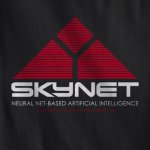Robot is kind of a catch-all term now. At my last job, we'd find a clerical type task that someone was doing on the computer, then use software to catch their keystrokes, then build a task that would duplicate the results. Then we'd take an old PC and run that task on that PC. We'd call it a robot box. And it was, because it did an automated task repetitively, with no human intervention.
The tricky part about robots, wether it's software or hardware, is accounting for the out-of-the-ordinaries. That is, unexpected or infrequently encountered situations. A human would know, for example, how to read handwritten instructions scribbled or typed into a NOTES field, and act on those instructions. Robot might have issues with that. So you have to program in check boxes for all foreseeable options and program the robot to act on those check boxes. Then it's just a matter of adding in new check boxes as they pop up from time to time.
Anyhow, I ended up with about 50 robot boxes doing tasks that humans used to do. The PC was about $600 new, depreciated to way less than that, worked 24/7, and told us when there was a problem. And we didn't have to pay them wages or benefits. Most of the lost human jobs were through attrition back then, so at least we didn't let anyone go at the time. However, it didn't create any new jobs.
And THAT is why automation of all tasks will eventually lead to very few jobs. The only jobs left will be for the people that think of the new jobs to be done, and a few installers, modifiers and preventative maintenance jobs. Machines are inherently less expensive than the people that run them over time, and it doesn't make business sense to hire people if you can have a machine do the same task and pay for itself in 6-7 years.


